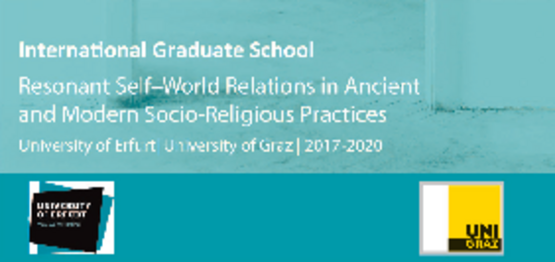Ramón Soneira Martínez
Atheism and unbelief in Ancient Greece
The principal aim of this project is to analyse the concept of atheism in different religious contexts, specifically in Ancient Greece. To achieve that, it is necessary to delimit the concept of atheism inside the background of unbelief. When we approximate to the diverse forms of atheism, we can see the huge variety of irreligious positions that depend on the way the religious context has been created. On the other hand, the relationship between religion and atheism is not similar in all historical contexts. Not always atheism expresses an antireligious position, neither today nor in antiquity. Also, in different religious context, people who denied God/divinity did not negate their spirituality or their religious practises.
This project is divided in three different parts. The first one is about the definition of unbelief and atheism as epistemological concepts. Unbelief is a wide category that allows us to create a field of study in which diverse irreligious positions can be studied. The concept of unbelief is usually utilized to classify people who deny religious beliefs or, simply, those do not believe in a religious dogma although they often form a cultural identity based on religious tradition. However, atheism is a specific philosophical position inside the category of unbelief that denies or doubts the existence of God or gods. There is a diverse typology of atheism (hard, soft, implicit, explicit, weak, strong, theoretical or practical atheism). Nevertheless, in this project we are going to focus in two divisions: positive/negative atheism and broad/narrow atheism. The second part of the project analyses different religious contexts in which atheism has been developed. On the one hand, the religions called “atheistic religions” as Jainism or Theravada Buddhism will be studied in the framework of narrow atheism. On the other hand, inside the context of Judaism and Islam, diverse philosophical atheistic position will be also analysed. Psalms 10 and 14, in the case of Judaism, and diverse authors as Ibn al-Rāwāndī or Al-Rāzī (s. IX) in Islamic thought. The last part introduces all these considerations in Ancient Greece. Different texts about irreligious positions among the Ancient Greek history, from the beginning of the philosophy with pre-Socratic authors to the end of the Classical period will be studied. Once the texts that criticize the idea of the gods or ritual practises have been classified, we can determine what type of atheism is developed in Ancient Greece.
Academic CV
- from October 2018: Doctoral student at the Max-Weber-Kolleg, Erfurt.
- October 2016 – June 2018: Doctoral Studies, "Ciencias de las Religiones" Programme, Complutense University of Madrid (Spain).
- October 2015 – June 2016: Master's Studies, "Ciencias de las Religiones" Programme, Complutense University of Madrid (Spain).
- October 2011 – June 2015: Bachelor's Studies in History, Complutense University of Madrid (Spain).
Internationale Graduiertenschule





